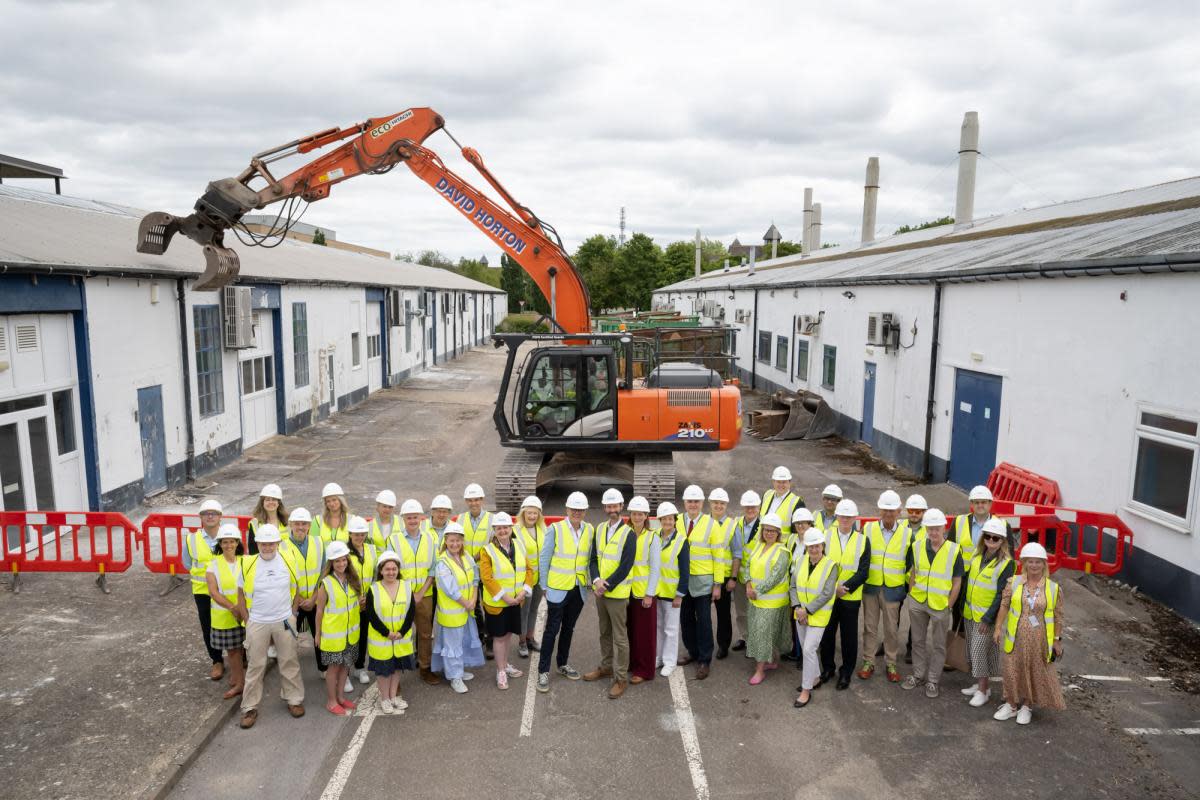Science park celebrates history at demolition ceremony

Past and present members of the innovation community at a business park near Didcot recently gathered to celebrate the science and technology that has spun-out of its wartime buildings.
A demolition ceremony saluted the last remnants of 57 and 59 Jubilee Avenue, Milton Park’s last two remaining single-storey wartime buildings.
From their time as an RAF depot with early punch card machines and radio wireless technology, to life science companies using them for cancer research and Covid-19 vaccines, the buildings have played host to a range of innovation over the years.
During World War One, the Royal Flying Corps used Milton as a supply depot owing to its strategic location on the Great Western Mainline to support aviation's infancy.
RAF Milton Depot then played a key role during World War Two by supplying equipment and parts to keep planes flying, with more than 800,000-line items in stock, from Spitfire wings to buttons for uniforms.
Post-war, Milton Depot evolved into Milton Trading Estate, becoming a logistics and enterprise hub, and was bought by MEPC in 1985.
Aiming to foster emerging companies, management provided accommodation and support to spinout companies in the 1980s, a bold step as many landlords wanted iron clad financials and long lease terms at the time.
Fifty-seven and 59 Jubilee Avenue became incubator spaces for science companies, including early Oxford University spinouts like Oxford Asymmetry International, acquired by Evotec and Avidex, which evolved into Immunocore and Adaptimmune.
The adaptable space has allowed a range of spinouts to grow into multi-national and unicorn companies.
Today, the organisations collectively employ thousands of people across the globe and are among Milton Park’s largest occupiers.
Kathryn Wilkes, vice president, human resources for Evotec, said: “The ceremony was a fitting reminder of just how far Evotec has come.
“I can remember working in the buildings in the ‘90s with just one computer between us and when it was cold, our chemicals would freeze in the winter.
"Without building 57 and without Milton Park being so flexible, Evotec wouldn’t exist as it does today.”
Jo Brewer, chief scientific officer at Adaptimmune, added: “In the early days, the buildings’ cheaper rent played a big part in enabling us to scale rapidly and invest more money into the science.
“I fondly recall seeing Helen Tayton-Martin, Adaptimmune’s founder, signing documents to start the business with one hand, while changing her new-born daughter’s nappy with the other. It’s amazing to think just how far we’ve come.”
The demolition of the buildings will enable Milton Park to build on its ambition to continue to support innovation.

 Yahoo News
Yahoo News 
